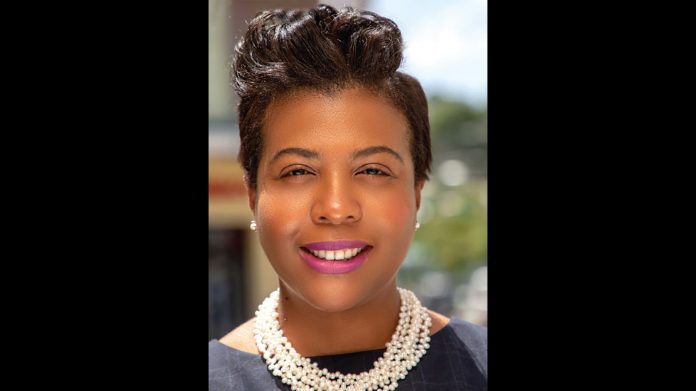By Orville Williams
It appears the longstanding concerns about corresponding banking, in Antigua and Barbuda at least, have been soothed somewhat, based on word from the newly-installed President of the Antigua and Barbuda Bankers Association.
For years, financial institutions across the region have been fearful that the actions of their international counterparts in more developed countries to withdraw correspondent banking services, would result in their exclusion from the global financial ecosystem.
That would have dire effects on the home countries who depend on these banking relationships to maintain financial stability and stimulate economic growth.
From the standpoint of the larger and more profitable banks, they consider the size and profitability of the banks that they have these relationships with, and largely view banks in the sub-region as too small.
However, according to Ladesa James-Williams, the fact that banks in Antigua and Barbuda have begun to consolidate has had a positive impact on that situation, arresting a decline that would have a detrimental impact on the country.
“What we’re seeing is a stabilisation of the corresponding banking issue, specifically for Antigua and Barbuda. The consolidation has really meant that the banks are stronger, they’re more capitalised and we haven’t seen any additional loss of corresponding banking relationships.
“It’s not to say the situation can’t be reversed, but as it stands now, it’s a stable situation,” she said.
Within the past two years, the Antigua Commercial Bank (ACB) has acquired the operations of the Royal Bank of Canada (RBC) as it ended its tenure in Antigua, while the Eastern Caribbean Amalgamated Bank (ECAB) has similarly taken on the local assets of Scotiabank.
These moves have been hailed by financial leaders and government officials as significant steps in the right direction, giving local banks more power to do things like establish and maintain important corresponding banking relationships.
James-Williams also assured that the association will maintain a watchful eye over the corresponding banking issue, alongside other important partners.
“Corresponding banking relationships continues to be a feature of our [engagements] with the Eastern Caribbean Central Bank (ECCB), our regulator, and so it is really being addressed from all levels – from the regulator, from the banks themselves and from the various governments.
“I think [the public] can be well assured that the matter has the full attention of all the stakeholders,” she said.
Meanwhile, in response to concerns about an increase in various banking fees across financial institutions in the country, James-Williams has pointed to a gradual, ongoing shift in the nature of the industry.
She acknowledged that an increasing number of customers and banks are climbing aboard the digitalisation wave and noted that that is where customers will find it cheaper to do their banking.
“Where we see the industry going is more and more clients using our digital platforms. I think [the Covid-19 pandemic] has really propelled the digital adoption and it’s also propelled some banks in terms of their digital journey.
“So, as more people transact their banking online, they’re actually going to find that it’s cheaper. We’re not thinking that banking is going to be more expensive, [but] banking is going to change. You’re going to do your banking online and online transactions are generally cheaper than manual transactions,” she added.
Last year, James-Williams made history by becoming the first Antigua-born woman to head a major international bank in the twin island state, when she assumed the role of Director, Retail Sale OECS and Country Head at CIBC FirstCaribbean.

